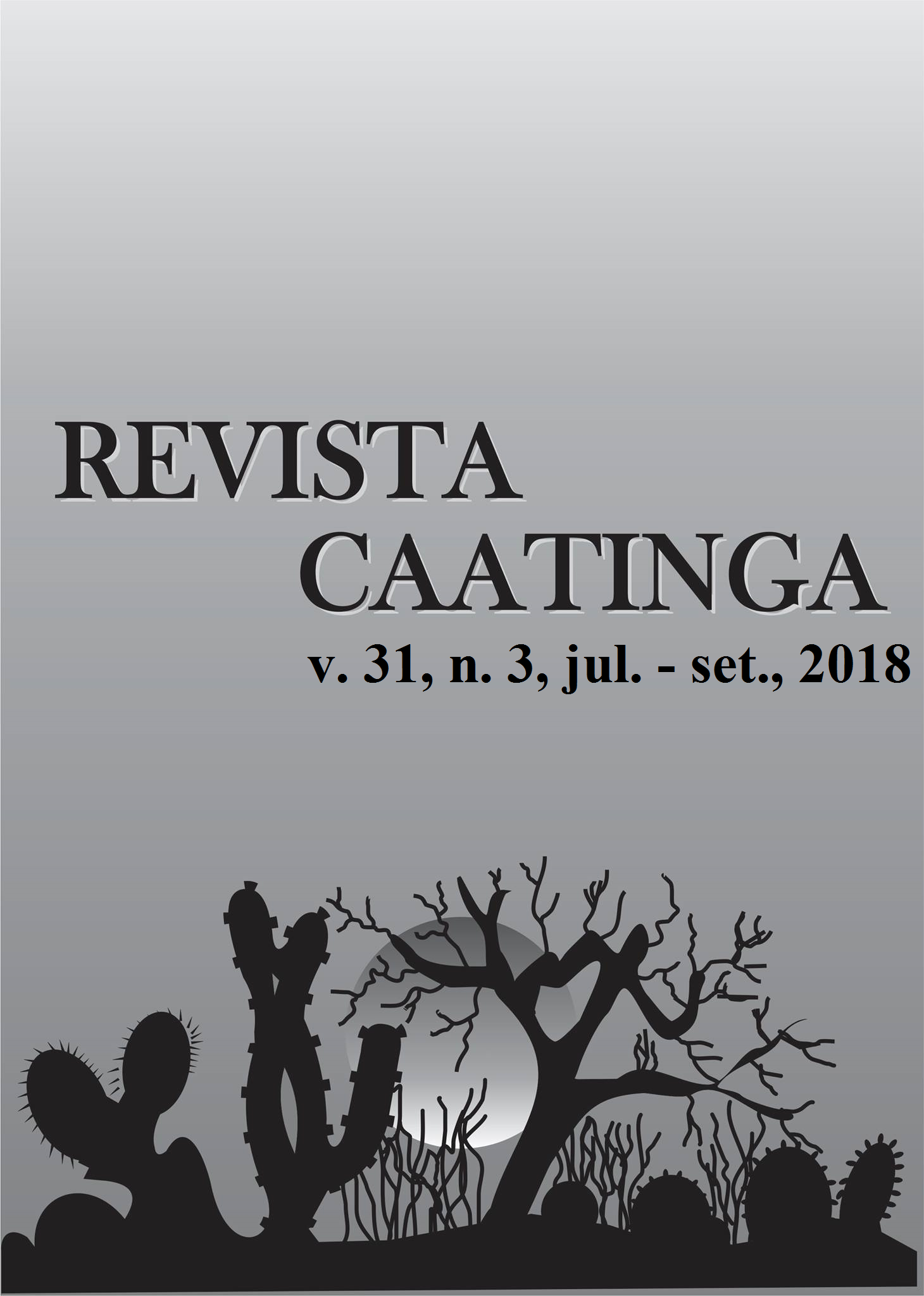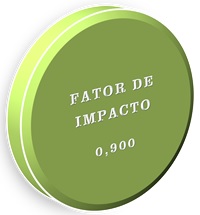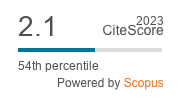ENZYME COMPLEX SUPPLEMENTATION ON THE PERFORMANCE OF SWINE IN GROWTH AND FINISHING PHASES
DOI:
https://doi.org/10.1590/1983-21252018v31n325rcKeywords:
Additives. Efficiency. Enzymes. Nutrition.Abstract
The objective of this study was to evaluate the use of an enzyme complex—α-amylase, ß-glucanase, phytase, cellulase, xylanase and protease—in the feed of swine in growing and finishing phases, by assessing their performance (daily weight gain, daily feed intake, and feed conversion), dry matter, crude protein, and crude energy apparent digestibility, and the feed costs. Eighty pigs—castrated males, and females—of approximately 63 days of age and initial weight of 20.18±1.98 kg were distributed in a 5×2 factorial arrangement (diet × sex), in a randomized block design, with eight replications. The treatments used were: positive control diet consisted of 3,300 kcal/kg in the growth-I phase, and 3,250 kcal/kg in the growth-II and finishing phases; negative control diet with energy reduction of 85 kcal/kg of metabolizable energy (ME) (NC85); NC85 diet with addition of enzyme complex (EC85); negative control diet with energy reduction of 100 kcal/kg ME (NC100); NC100 diet with addition of enzyme complex (EC100). The addition of the enzyme complex to the diet with energy reduction of 100 kcal/kg ME increased the digestible protein content of the diet for the swine in the growth-II phase. The addition of the enzyme complex to the diet with energy reduction of 85 and 100 kcal/kg ME increased the digestible energy content of the diets for the swine in the finishing phase. The use of enzyme complex in diets with reduction of 85 kcal/kg ME for male swine in growing and finishing phases is recommended for improving feed conversion and economic efficiency during the growth-I phase. The use of enzyme complex is not justified for female swine.Downloads
References
BARBOSA, N. A. A. et al. Enzimas exógenas em dietas de frangos de corte: desempenho. Ciência Rural, Santa Maria, v. 42, n. 8, p. 1497-1502, 2012.
BELLAVER, C. et al. Radícula de malte na alimentação de suínos em crescimento e terminação. Pesquisa Agropecuária Brasileira, Brasília, v. 20, n. 8, p. 969-974, 1985.
CANTARELLI, V. S. et al. Composição química, vitreosidade e digestibilidade de diferentes híbridos de milho para suínos. Ciência e Agrotecnologia, Lavras, v. 31, n. 3, p. 860-864, 2007.
CARDOSO, D. M. et al. Uso de enzimas exógenas na avicultura: uma visão crítica, Boletim da Indústria Animal, Nova Odessa, v. 67, n. 2, p. 191-198, 2010.
CARVALHO, A. A. et al. Digestibilidade aparente de dietas e metabolismo de frangos de corte alimentados com dietas contendo soja integral processada. Ciência Rural, Santa Maria, v. 38, n. 2, p. 477-483, 2008.
CARVALHO, D. C. O. et al. Coeficiente de digestibilidade verdadeira dos aminoácidos e valores de aminoácidos digestíveis de milho submetido a diferentes temperaturas de secagem e períodos de armazenamento. Revista Brasileira de Zootecnia, Viçosa, v. 38, n. 5, p. 850-856, 2009.
FERREIRA, D. F. Sisvar: a computer statistical analysis system. Ciência e Agrotecnologia, Viçosa, v. 35, n. 6, p. 1039-1042, 2011.
HAUSCHILD, L. et al. Utilização do triticale e de enzimas em dietas para suínos: digestibilidade e metabolismo. Arquivo Brasileiro de Medicina Veterinária e Zootecnia, Belo Horizonte, v. 60, n. 2, p. 470-476, 2008.
HURTADO NERY, V. L. et al. Adição de enzimas exógenas para leitões dos 10 aos 30 kg de peso. Revista Brasileira de Zootecnia, Viçosa, v. 29, n. 3, p. 794-802, 2000.
KIARIE, E.; ROMERO, L. F.; NYACHOTI, C. M. The role of added feed enzymes in promoting gut health in swine and poultry. Nutrition Research Reviews, Cambridge, v. 26, n. 1, p. 71–88, 2013.
KIM, S. W. et al. Use of carbohydrases in corn-soybean meal based grower-finisher pig diets. Animal Research, Cambridge, v. 55, n. 6, p. 563-578, 2006.
LEWIS, A. J. Amino acids in swine nutrition. In: LEWIS, A. J.; SOUTHERN, L. L. (Eds.). Swine nutrition. 2thed. Boca Raton: CRC press, 2001. p. 131-141.
LIMA, M. R. et al. Enzimas exógenas na alimentação de aves. Acta Veterinaria Brasilica, Mossoró, v. 1, n. 4, p. 99-110, 2007.
LORENA-REZENDE, I. M. B. L. et al. Digestibility of the cottonseed meal with or without addition of protease and phytase enzymes in swine diet. Acta Scientiarum, Maringá, v. 34, n. 3, p. 259-265, 2012.
LUDKE, M. C. M. M. et al. Soja integral processada de diferentes formas para uso em dietas para suínos em crescimento e terminação. Revista Brasileira de Zootecnia, Viçosa, v. 36, n. 5, p. 1566-1572, 2007.
MATHLOUTHI, N. et al. Effects of xylanase and b-glucanase addition on performance, nutrient digestibility, and physico-chemical conditions in the small intestine contents and caecal microflora of broiler chickens fed a wheat and barley-based diet. Animal Research, Cambridge, v. 51, n. 5, p. 395–406, 2002.
NATIONAL RESEARCH COUNCIL - NRC. Subcommittee on Swine Nutrition. Committee on Animal Nutrition. Nutrient requeriments of swine. 11. ed. Washington: National Academy Press, 2012. 400 p.
OLUKOSI, O. A.; COWIESON, A. J.; ADEOLA, O. Age-related influence of a cocktail of xylanase, amylase, and protease or phytase individually or in combination in broilers. Poultry Science, Champaing, v. 86, n. 1, p. 77-86, 2007.
RODRIGUES, P. B. et al. Desempenho de frangos de corte, digestibilidade de nutrientes e valores energéticos de rações formuladas com vários milhos, suplementadas com enzimas. Revista Brasileira de Zootecnia, Viçosa, v. 32, n. 1. p. 171-182, 2002.
ROSTAGNO, H. S. et al. Tabelas brasileiras para aves e suínos: composição de alimentos e exigências nutricionais. 3. ed. Viçosa, MG: UFV, 2011. 252 p.
RUIZ, U. S. et al. Complexo enzimático para suínos: digestão, metabolismo, desempenho e impacto ambiental. Revista Brasileira de Zootecnia, Viçosa, v. 37, n. 3, p. 458-468, 2008.
RUIZ, U. S. et al. Enzyme complex supplementation in different nutrient levels diets on pigs feces excretion and anaerobic digestion. Scientia agrícola, Piracicaba, v. 74, n. 3, p. 180-188, 2017.
SAKOMURA, N. K.; ROSTAGNO, H. S. Métodos de pesquisa em nutrição de monogástricos. 2. ed. Jaboticabal, SP: Funep, 2016. 262 p.
SELLE, P. H.; RAVINDRAN, V. Phytate-degrading enzymes in pig nutrition. Livestock Science, Amsterdam, v. 113, n. 2, p. 99-122, 2008.
SILVA, C. A. et al. Utilização de um complexo enzimático para rações contendo farelo de gérmen de milho desengordurado para suínos em fase de crescimento e terminação. Semina: Ciências Agrárias, Londrina, v. 34, n. 6, p. 4065-4082, 2013.
VAN KEULEN, J.; YOUNG, B. A. Evaluation of acid-insoluble ash as natural marker in ruminant digestibility studies. Journal of Animal Science, Champaign, v. 44, n. 2, p. 282-287, 1977.
TAVERNARI, F. C. et al. Efeito da utilização de farelo de girassol na dieta sobre o desempenho de frangos de corte. Revista Brasileira de Zootecnia, Viçosa, v. 38, n. 9, p. 1745-1750, 2009.
Downloads
Published
Issue
Section
License
Os Autores que publicam na Revista Caatinga concordam com os seguintes termos:
a) Os Autores mantêm os direitos autorais e concedem à revista o direito de primeira publicação, com o trabalho simultaneamente licenciado sob a Licença Creative Commons do tipo atribuição CC-BY, para todo o conteúdo do periódico, exceto onde estiver identificado, que permite o compartilhamento do trabalho com reconhecimento da autoria e publicação inicial nesta revista, sem fins comerciais.
b) Os Autores têm autorização para distribuição não-exclusiva da versão do trabalho publicada nesta revista (ex.: publicar em repositório institucional ou como capítulo de livro), com reconhecimento de autoria e publicação inicial nesta revista.
c) Os Autores têm permissão e são estimulados a publicar e distribuir seu trabalho online (ex.: em repositórios institucionais ou na sua página pessoal) a qualquer ponto antes ou durante o processo editorial, já que isso pode gerar alterações produtivas, bem como aumentar o impacto e a citação do trabalho publicado (Veja O Efeito do Acesso Livre).







